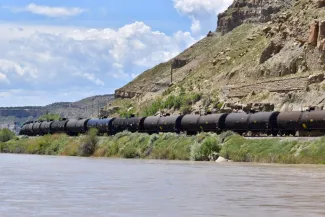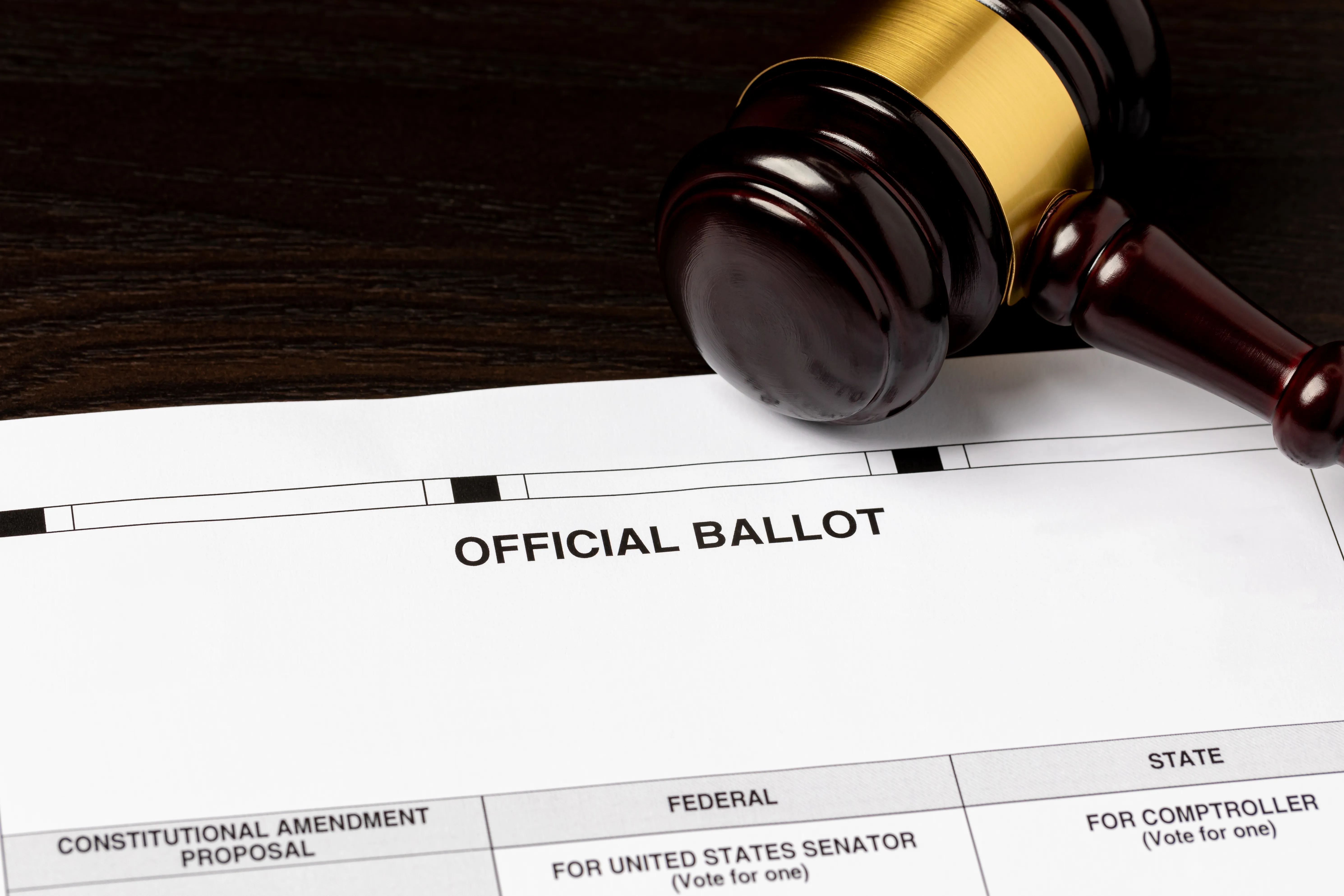
Supreme Court will review nixing of Utah oil train project that drew Colorado opposition
(Colorado Newsline) The U.S. Supreme Court on Monday accepted a last-ditch appeal from the backers of a controversial oil-by-rail project in eastern Utah, agreeing to review a lower-court ruling that sided with a Colorado county and environmental groups who accused federal regulators of failing to adequately analyze the proposal’s downstream risks.
In an August 2023 ruling, the U.S. Court of Appeals for the D.C. Circuit found that the Surface Transportation Board’s approval of the 88-mile Uinta Basin Railway contained “numerous” and “significant” violations of the National Environmental Policy Act, and ordered the STB to correct deficiencies in the project’s environmental impact statement. The Seven County Infrastructure Coalition, a group of Utah county governments backing the project, appealed the ruling to the Supreme Court in March.
In a list of case orders released Monday morning, the court issued a so-called writ of certiorari and agreed to review the case. With the Supreme Court set to enter its summer recess next week, arguments in the case, Seven County Infrastructure Coalition v. Eagle County, will be heard during the court’s next term, which begins in October.
An ambitious multibillion-dollar scheme first formally proposed in 2019, the Uinta Basin Railway aims to connect Utah’s largest oil field to the national rail network, allowing drillers there to ship large volumes of the basin’s “waxy” crude oil to Gulf Coast refineries. At an estimated capacity of up to 350,000 barrels exported per day, it would rank among the largest sustained efforts to transport oil by rail ever undertaken in the U.S., singlehandedly more than doubling the nationwide total in 2022, and causing a tenfold increase in hazmat rail traffic through environmentally sensitive and densely populated areas in Colorado.

A train of tanker cars travels the tracks along the Colorado River near Cameo on May 16, 2023. Chase Woodruff/Colorado Newsline
Colorado’s Eagle County joined five environmental groups in suing the STB over its 2021 approval of the project, arguing the agency’s analysis had violated NEPA. A three-judge Court of Appeals panel agreed, directing the STB to further scrutinize downstream risks of increased oil-train traffic in Colorado, wildfire hazards, impacts on communities along the Gulf Coast and more.
“It’s disappointing the Supreme Court took up this case but the appellate court’s decision on this destructive project is legally sound and should ultimately stand,” said Wendy Park, an attorney with the Center for Biological Diversity, one of the environmental groups that sued to block the project. “The proposal for the Uinta Basin Railway cut corners from the start but federal laws are now catching up with this climate and environmental catastrophe.”
In its March 4 petition to the Supreme Court, the Seven County Infrastructure Coalition argued that the lower court’s ruling conflicted with existing case law, and that analysis of such “distant effects” would exceed the STB’s authority.
“Agencies need a manageable line to guide their NEPA studies, and this Court is now the only place to find one,” the coalition wrote.
In a reply brief, Eagle County and the environmental groups wrote that the lower court “correctly concluded the Board has authority to consider the reasonably foreseeable effects of oil production and refining that the Railway would induce.”
Keith Heaton, the Seven County Infrastructure Coalition’s executive director, told a committee of Utah lawmakers in February that while he believed the project had “a very good case before the Supreme Court,” his organization was prepared for a do-over of the NEPA process if necessary. The project is a public-private partnership between Heaton’s group, the Rio Grande Pacific Corporation and the private equity firm Drexel Hamilton Infrastructure Partners.
“Worst case scenario is we can always go back and re-do the environmental impact statement,” Heaton said.
Even with federal approval, however, critics have expressed widespread doubts about the partnership’s chances of securing the billions in financing necessary to build and operate the rail line. Backers have signaled their intent to apply for $1.9 billion in special tax-exempt infrastructure bonds that must be approved by the Department of Transportation, a move that also drawn staunch opposition from Colorado lawmakers.
“The fossil fuel industry’s insistence on a doomed project at the expense of taxpayers underscores that it’s only interested in protecting its own bottom line,” said Luis Miranda, director of the Sierra Club’s Utah chapter. “The Uinta Basin Railway threatens public health, as well as treasured landscapes and waterways. A derailment would carry immeasurable harm.”
Colorado Newsline is part of States Newsroom, a nonprofit news network supported by grants and a coalition of donors as a 501c(3) public charity. Colorado Newsline maintains editorial independence. Contact Editor Quentin Young for questions: info@coloradonewsline.com. Follow Colorado Newsline on Facebook and X.

















